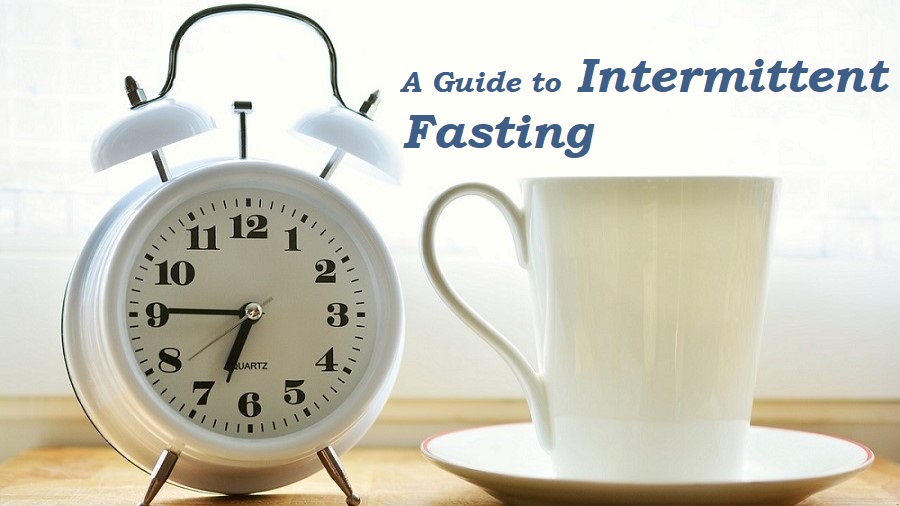Many of you may have heard the term intermittent fasting from your friends, colleagues, relatives, workout buddies, or social media handles, as a popular way to reduce weight. Intermittent fasting is the latest buzzword the health and fitness industry is telling nowadays. Some researches have shown that intermittent fasting is beneficial for weight loss and to reverse certain diseases. But how to follow it? Is it safe? What are the risks associated with intermittent fasting? You might have so many doubts like this. If you are planning to take intermittent fasting but confused about the benefits and side effects, continue reading.
Intermittent fasting (IF) is an eating pattern that cycles between the period of eating and fasting. In intermittent fasting, there won’t be any restrictions on what to eat and what you don’t. Rather it focuses on the time you eat food.
This is the ultimate guide to intermittent fasting for beginners.
What is Intermittent Fasting?
Since human evolution, deliberate or unintentional fasting has been carried out by people due to famine or as part of some rituals. Hence, fasting is not a new term for humans. And we have developed to be able to function without food for extended periods of time. Unlike other dietary patterns, intermittent fasting follows a specific time pattern for eating. It’s all about when you eat not what you eat. When you practise intermittent fasting, you are supposed to eat during certain times only.
In intermittent fasting, these eating gaps are part of our dietary decisions. Fasting for a specific number of hours per day or eating just one meal a couple of days a week can help your body burn fat. Be it a 16:8, 14:10 eating time proportion or Eat-Stop-Eat method, you must be consistent to get better results.
Types of Intermittent Fasting
There are different intermittent fasting schedules and types. You can follow the one that suits your comfort.
16:8 Approach
Though there are different patterns of intermittent fasting, the most common type is the 16:8 approach, in which you can eat during day time for 8 hours and fast for 16 hours till the next first meal of the day. Health experts suggest keeping the eating windows in the early hours of the day for great benefits. Though this is the best approach that brings maximum benefits, beginners can follow the 14:10 ratio because a sudden change in the dietary pattern can sometimes adversely affect your digestion.
5:2 Diet
This is another intermittent fasting approach, wherein you can eat regularly for five days of the week, restricting high-calorie (500-600 calories) intake on 2 non-consecutive days.
Alternate-Day Fasting
In the alternate-day fasting approach, you fast only on alternate days. Fast every other day with zero-calorie or restricted calorie intake. That is, you can eat 24-hours today, fasting 24-hours fasting tomorrow; likewise the whole week. To be more precise, in alternate-day fasting, you can follow a low-calorie normal diet on alternative days.
Eat-Stop-Eat
Eat-stop-eat is another type of intermittent fasting, which allows you to fast for 24 hours, once or twice a week. In simple words, you are not supposed to eat after your dinner until the next dinner the following day.
Benefits of Intermittent Fasting
Intermittent fasting is not about eating whole food, raw fruits or practising any specific diet. It’s simply scheduling your meals’ timing increasing a long gap between the last meal of the day and the first meal of the next day. Beneficial changes are seen related to the longevity seen in genes.
Intermittent fasting benefits vary with different body types and people with different eating habits. Some studies have shown that intermittent fasting can bring powerful changes in weight reduction and the health of your body. Still, more reflections are yet to come. Some of the most interpreted benefits of intermittent fasting are:
- Weight Loss without restricting your regular eating habits or calorie intake.
- Studies revealed that intermittent fasting boosts working memory in adult humans.
- Reduce insulin resistance, lowering blood sugar levels.
- Improved blood sugar and cholesterol levels.
- Reduces risk factors of heart disease
- Lowers inflammation
- Expected to decrease tissue damage in surgery and better results.
Side Effects of Intermittent Fasting
Intermittent fasting may not work for everyone. For example, if you are a chronic acidic patient or someone who is having GERD, heartburn, or have eating disorders like anorexia, intermittent fasting may not be recommended for you. Some of the very common risks of intermittent fasting include:
- May result in a slower metabolism
- May experience dizziness, headache, and heartburn
- Potential health consequences that can adversely affect menstruation and fertility
- May result in binge eating
- Possibilities of excessive hunger and constipation
- Negative impact for persons with low blood pressure and blood sugar irregularity
Is Intermittent Fasting Safe?
As mentioned earlier, intermittent fasting is not safe for everyone. While some people try intermittent fasting for body weight control, some others follow this fasting method for managing cholesterol and blood sugar. Anyways, before starting intermittent fasting, better consult a nutritionist/dietician or health practitioner to make sure that you’re fit to follow this fasting method.
- If you are on medications or having some serious medical conditions, abstain from these kinds of fasting.
- People with diabetes and blood pressure are also not expected to follow intermittent fasting.
- Pregnant and breastfeeding women should not follow intermittent fasting unless under the supervision of a physician.
- Do not attempt intermittent fasting, if you have a history of eating disorders like anorexia and bulimia
- People with heartburn, severe acidic reflux and gastroesophageal reflux disease are not supposed to try intermittent fasting.
- Stay away from intermittent fasting if you are underweight.
Tips for Better Health
There aren’t any specific dos or don’ts in intermittent fasting. Though there are not strict intermittent fasting rules, for better health and great results, it is good if you:
- Avoid sugars and refined grains
- Include more vegetables, fruits, lentils, proteins, and healthy fats in your diet.
- Be active throughout your day
- Don’t snack during fasting time.
- Limit hours of the days when you eat.
- Don’t eat more frequently during the eating-hours
- Avoid eating at late nighttime
How to do it
We all might have already taken part in many intermittent fasting knowingly or unknowingly in our life owing to hectic work schedules, late wakeups, or some other reasons.
Getting started, it is better to have your dinner earlier, especially before 8 PM and not eat anything until 11 AM the next day. In the first few days, you can take 14-hour intermittent fasting, slowly, you can switch over to the 16-hour fasting considering the time of the last food of the day.
The 16:8 fasting method is considered the easiest and sustainable way of intermittent fasting. If you are more comfortable with other eating patterns like the alternative day fast or Eat-stop-eat pattern, you can follow that at your convenience.
There is no need to follow a stringent intermittent fasting plan to reap the benefits. Experiment with the different eating patterns and find something that you feel comfortable with and fits your schedule.
Health experts usually advise finishing the food consumption in the early evening, as metabolism slows down when having late-night food. Whatever, it is best to stop your eating 2–3 hours before bed.
When it comes to intermittent fasting schedule, you may choose one of the following 8-hour eating windows:
9 am to 5 pm
10 am to 6 pm
11 am to 7 pm
12 pm to 8 pm
Within this timeframe, you can have your main meals and snacks at your convenience. Eating healthily and regularly is crucial to prevent blood sugar rises and drops and to avoid excessive hunger and binge eating.
Questions People Ask on Intermittent Fasting
- Can I try intermittent fasting?
Intermittent fasting is an eating pattern that comes with both pros and cons. So when you should attempt intermittent fasting based on your health and health goals. Consult a nutritionist and pick a diet or meal plan that works for you.
- Isn’t it unhealthy to avoid breakfast?
Breakfast is considered as the main meal during one’s growing age. In the adult age, there isn’t much problem if you skip breakfast. You should follow a healthy lifestyle and make sure to eat healthy food for the rest of the day.
- Can I drink tea or coffee during intermittent fasting?
Yes. Water, tea, coffee, green tea and other low-calorie drinks are fine. Remember, not to add sugar to your drinks. Better skip milk and cream for great results.
- How to control hunger while intermittent fasting?
When you start fasting, hunger will be higher on the second day. But, gradually, your hunger sensation will decrease over time. You can satiate hunger by drinking water/green tea or indulging in some activities to divert your mind.
- Can I take supplements while fasting?
Yes. Taking supplements is fine if it is under the supervision of a physician or nutritionist.
- Will intermittent fasting cause muscle loss?
Compared to other weight loss methods, intermittent fasting cause less muscle loss. However, it’s essential to add more protein to your diet and be active through physical exercise.
- Can I work during fasting time?
Yes, it is okay to do workouts during your fast period. But it is better to avoid workouts in the last hours of your fasting because you may be weak and powerless during that time.



